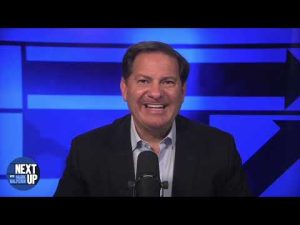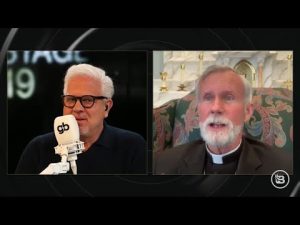**The Immigration Debate: Rhetoric, Reality, and Responsibility**
In recent weeks, immigration has been a hot topic that evokes passionate responses from all sides. As the stock market enjoys record highs, financial experts remind investors to diversify their portfolios. But as our economy thrives, it’s essential to consider whether everyone is on board with the American Dream. The rhetoric surrounding immigration has raised concerns, especially among those who feel caught in the crossfire of political discourse. One independent voter expressed worries about how these discussions could impact Latino communities, particularly following some unsavory remarks made at a recent rally.
The issue of how the Republican Party portrays immigration has drawn attention, particularly remarks made about Puerto Rico. A speaker at a rally left many puzzled after making a comment that insulted the island territory, prompting a heartfelt response from a Dominican and Haitian man who proudly operates a food truck in Greenville. He voiced his concerns about the hurtful rhetoric and how it could shape policies impacting communities like his. The juxtaposition of personal experiences against the backdrop of political commentary shows just how real this topic is for many individuals living in the U.S.
The crux of the conversation often leads to a debate on whether it should be illegal for individuals to enter the country without permission. While some argue that laws should be upheld, others highlight the complexities of immigration, focusing on the distinct reasons people seek a better life in America. After all, people often flee difficult circumstances in search of opportunity. Unfortunately, such sentiments can lead to tension. The discussion quickly escalated, with stark reminders of the need to prioritize the well-being of American citizens who might feel alienated in their own country, especially in an age marked by economic hardship and rising mental health challenges.
A key point of contention lies in how immigrants are viewed within the broader societal context. Does a comedian’s poor joke about Puerto Rico carry more weight than the words of a president labeling fellow Americans as “garbage”? The man at the rally might have found truth in both sides, stressing that all rhetoric has consequences that can influence perceptions and policies, particularly for those trying to live peacefully in the U.S. While comedic comments may often be dismissed as jest, when coupled with harsh political language, they can foster an environment of mistrust and hostility, hitting vulnerable communities especially hard.
As discussions evolved, the conversation turned to the individuals who enter our nation legally, often after facing significant hurdles. The notion that those who follow immigration laws deserve respect placed important emphasis on the legal route of entry, contrasting it with unauthorized migrations. The argument that undocumented immigrants are unfairly cutting in line resonates with many who respect the painstaking process their families undertook. The expectation is clear: respect the laws, respect the dreams of others, and remember that the struggle for opportunity is universal.
Ultimately, this conversation reflects an ongoing theme in American society: tension between progress and protectionism, inclusion and exclusion. As discussions around immigration rattle through neighborhoods and boardrooms alike, personal stories and shared experiences remind us that behind the rhetoric are lives, dreams, and hopes for a better tomorrow. As Americans navigate these complicated waters, the focus might well be on finding solutions that consider both the responsibilities to our nation’s citizens and the long-standing ethos of welcoming those seeking refuge in their pursuit of happiness.







